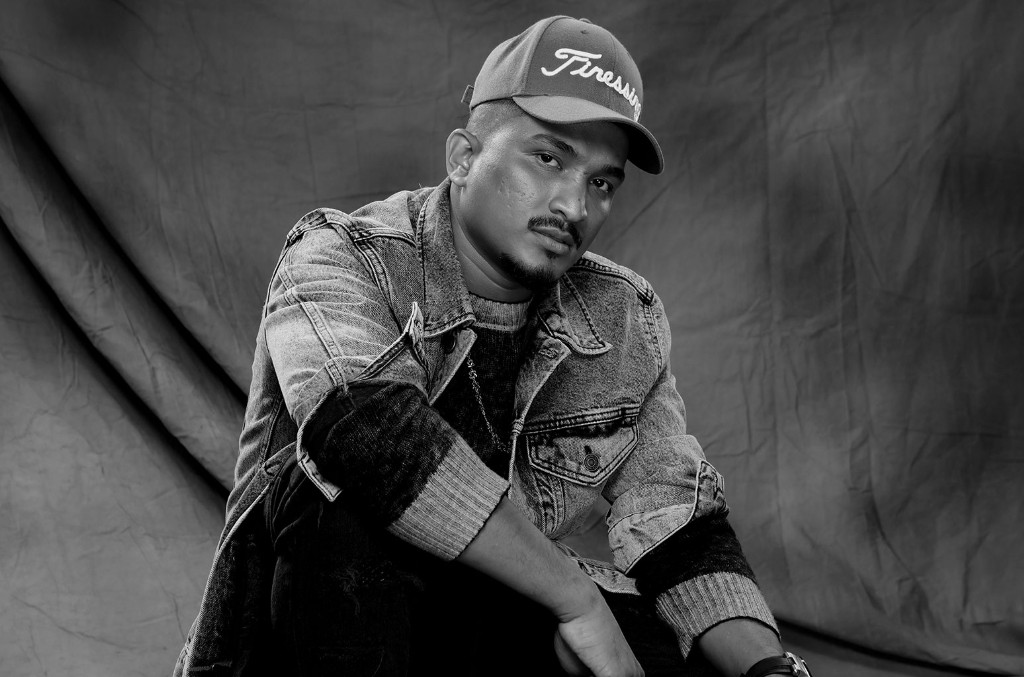

How an Odiya rapper is revealing facts about migrant workers and corruption that often miss the privileged eye, writes Shaurya Thapa
Twenty seven year-old, Duleshwar Tandi’s journey from a waiter, to a tuition teacher and into the world of hip-hop was paved by frustration against the system. A migrant worker from Odisha’s Kalahandi district is using music as a medium to express the pain he has endured since the coronavirus pandemic first hit India in March.
Despite being a chemistry undergraduate, Tandi worked as a waiter in Raipur, Chattisgarh to make ends meet. The long government issued lock-downs only increased his troubles further as his income continued to deplete. Away from home and struggling at the prospect of what the future had in store for him, Tandi used rap to express what he was feeling.
Calling himself the Dule Rocker, he released a couple of raps but the one that caught everyone’s eye was the Odiya rap—sarkar, jabaab de (government, give an answer). The now viral hit Tandi has had his videos shared by Bollywood stars like Richa Chadda and musician Vishal Dadlani.
In Sarkaar jabaab de, Tandi goes on to throw around bars bringing out real cases from his region on how migrant workers, pregnant women, and many others suffered due to improper implementation of the various lock-downs in recent times.
A preview of his other songs reveals similar themes, as he often uses his raps to start a conversation whenever he finds inefficiencies with the state and central government. In one of his songs titled Telling the Truth, Dule adds that the life he and his community face has been tough and the fact that ‘burger, pizza khane wale’ aka the privileged urban elites wouldn’t know this struggle at all.
After having worked as a waiter and a tuition teacher, Dule has finally found his calling, as more and more people recognise the raw passion in his hip-hop. “In a way, I had been rapping from before but never knew it’s called rap,” he says, recounting his past. “I was always a kalakaar, an artist. I used to perform in dramas a child artist. Singing, dancing also came as interests. Then in college, I was required to write kavita (poetry) sometimes. And then came a moment when I naturally transitioned into writing raps.”
But it took some time for Dule to shape his current persona of a socially-conscious rapper. As has been the case with many an Indian— controversial Punjabi rapper Yo Yo Honey Singh’s discography introduced Dule to rap music. This was the phase when Singh was not associated with Bollywood, and was laying the foundations of his own brand of rap. “Whoever started at my level, they started by listening to Honey Singh. At one point, I started writing such negative lyrics because people didn’t have any other Indian artist to look up to in rap.” However, later, it dawned upon Dule that most of what he considered as rap was undesirable and it clearly didn’t bring out his real voice. Shortly after this he watched the Zoya Akhtar film on the Mumbai hip-hop scene Gully Boy and revelled in the new, different world of rap that resonated with him. “When Gully Boy released, I was fully influenced by it. I realised I need to change my line as an artist.” This is when he began to listen increasingly to Mumbai rapper Divine. In fact, his friends and online fans too compare him to Divine for his aggressive flow. Even his phone’s caller tune is set as the cult Divine song, Meri Gully Mei. “Again, these days, those Mumbai rappers also just seem to diss each other. I can’t do that because a person like me, who would I diss? So, I just write about the poverty that I’ve seen since childhood.”

Mumbai rapper Divine’s music changed Tandi’s perspective on rap
Yet, the Odiya rapper disses the government and the economic inequality that he witnesses. He’s glad that people are acknowledging his words and thoughts and he hopes that others also show empathy towards the harsh realities that people like him face. As of now, he has just been rapping as an interest, wishing to get more opportunities in the not-too-distant future.
Even Human Sagar, a hugely popular singer from Odisha showed his gratitude by transferring 30,000 rupees in Dule’s account. Meanwhile, Vishal Dadlani too is trying to offer his support as he tweeted, ‘…@DuleRocker, if you need help producing/recording/releasing your music, get in touch. I’ll do what I can.’ Dadlani further tagged rap bigwigs like Divine and Raftaar to explore Dule’s work.
Dule’s story shows the power of words and music in displaying ground reality in the same line as Odiya student activist and rapper Sumeet Samos. As a student of Latin American literature in JNU, Samos began rapping about his Dalit background and the casteism that he grew up with. His songs like his debut Ladai Seekh Le evoke the sense of struggle to fight Savarna oppression, while addressing atrocities against Dalits and his personal ideologies.
One can only hope that the honest, and original work of artists like Samos and Dule doesn’t get reduced to just tokenistic social media posts. In an age when ‘gully culture’ gets appropriated for clout, such artists’ resistance expresses the need to start actual conversations on changing society, rather than just hash tagging about it.